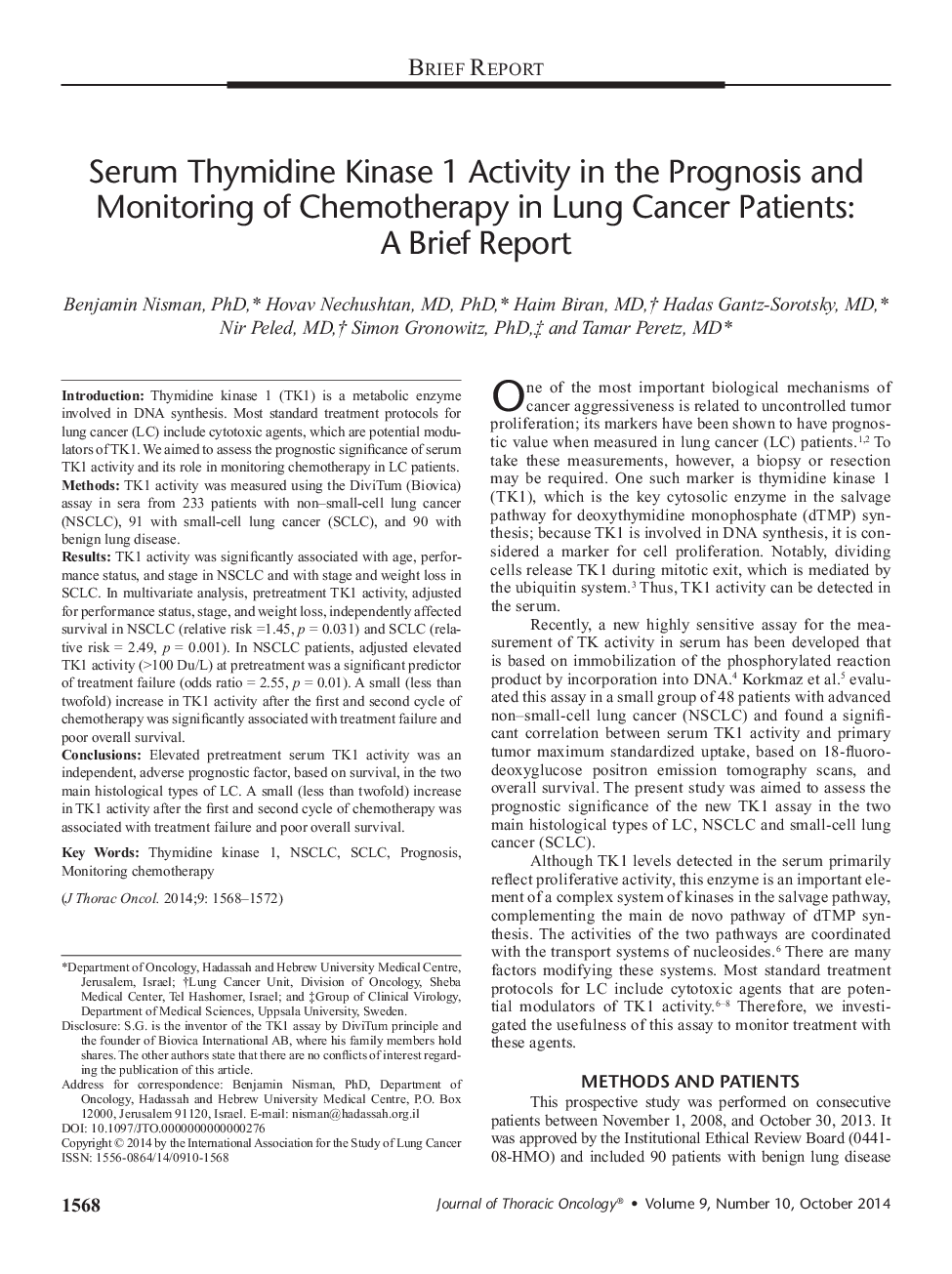| Article ID | Journal | Published Year | Pages | File Type |
|---|---|---|---|---|
| 6192962 | Journal of Thoracic Oncology | 2014 | 5 Pages |
IntroductionThymidine kinase 1 (TK1) is a metabolic enzyme involved in DNA synthesis. Most standard treatment protocols for lung cancer (LC) include cytotoxic agents, which are potential modulators of TK1. We aimed to assess the prognostic significance of serum TK1 activity and its role in monitoring chemotherapy in LC patients.MethodsTK1 activity was measured using the DiviTum (Biovica) assay in sera from 233 patients with non-small-cell lung cancer (NSCLC), 91 with small-cell lung cancer (SCLC), and 90 with benign lung disease.ResultsTK1 activity was significantly associated with age, performance status, and stage in NSCLC and with stage and weight loss in SCLC. In multivariate analysis, pretreatment TK1 activity, adjusted for performance status, stage, and weight loss, independently affected survival in NSCLC (relative risk =1.45, p = 0.031) and SCLC (relative risk = 2.49, p = 0.001). In NSCLC patients, adjusted elevated TK1 activity (>100 Du/L) at pretreatment was a significant predictor of treatment failure (odds ratio = 2.55, p = 0.01). A small (less than twofold) increase in TK1 activity after the first and second cycle of chemotherapy was significantly associated with treatment failure and poor overall survival.ConclusionsElevated pretreatment serum TK1 activity was an independent, adverse prognostic factor, based on survival, in the two main histological types of LC. A small (less than twofold) increase in TK1 activity after the first and second cycle of chemotherapy was associated with treatment failure and poor overall survival.
